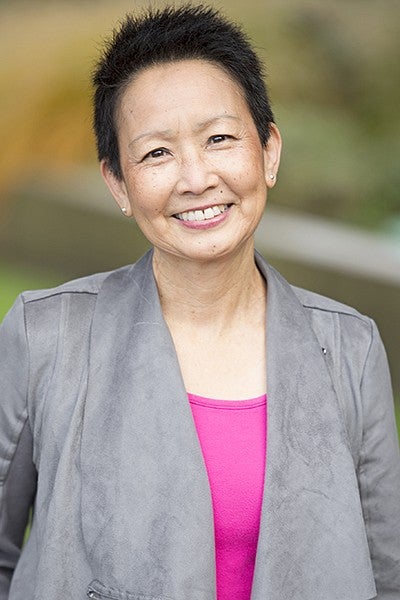
Education Studies
jmhall@uoregon.edu | 541-346-1511
Courses: UGST 112 Multicultural Scholars ARC seminar, EDST 411 Childhood Studies, and will be teaching EDST 111 Education Issues & Problems
In my classes you will:
- Learn with and from peers.
- Explore new perspectives.
I was invited into the Teaching Academy because:
- I participated in the UO Summer Teaching Institute.
In what ways are you working to make your teaching inclusive?
It’s an on-going process to make my teaching inclusive, because this means that I need to continually acknowledge and challenge the power structures that exists within the whole curriculum, including the inclusions and exclusions of the institution, the students, the content, and the teacher. I need to look at my own actions and interactions with students, critically assess and change the cultural relevance of the curriculum, and invite students to be engaged in their learning process in a variety of accessible ways.
For example, I need to critically look at my chosen readings and texts. Do they truly include diverse perspectives that provide deeper discussions on the complexity of knowledge power in this discipline’s theories and research? If not, I need to seek other or additional culturally relevant resources that will be infused in the class, not as an addendum. Are my course assignments asking the student to critically engage with content and readings that will challenge dominant culture perspectives or deepen their world view?
I need to intentionally include students into the learning community by asking them on the first day to write about themselves, how to pronounce their name, their preferred pronouns, and their prior knowledge of the content. It is also important for me to state that I wish to call students by the name that they prefer, not the name that is easier for those in the dominant culture to pronounce. It is up to me and all classmates to honor and learn how to pronounce each person’s name.
This leads into honoring and listening to other’s thoughts and experiences that deepen and broaden everyone’s learning experience in the course through intentional small group, pair, and whole class discussions.
What do you do in terms of professional engagement with the teaching and learning culture on campus or nationally?
I continue to seek professional development regarding scholarly work, as well as teaching practices, that will enhance the rigor and inclusiveness of my courses. As an example, I recently attended the American Psychological Association Division 45, Society for the Psychological Study of Culture, Ethnicity, and Race conference to glean from current research relating to child development and racial identity. I also participated in the UO Summer Institute that focused on first-year students’ experiences, and I collaborated with faculty who are also involved in developing first-year academic residential community seminars. It’s also important for me to confer with other colleagues in my department who have taught similar courses, in order to gain from their wisdom and to provide continuity within our program’s curriculum, and I welcome peer observations of my teaching, as well as observe other colleagues in my department and in other disciplines.
In what ways was your teaching in this course research-led—informed by research on how students learn and inflected by UO's research mission?
As an elementary educator, and as an educator of aspiring future K-12 teachers, I’m always challenged to practice what I preach regarding research-led teaching practices. Based on socio-cultural theories and research, I provide the rationale for the inclusive content of the course and provide structured engaged reflections between student-to-self, student-to-student, and student-to-world. I apply learning theories and research by providing the purpose, communicating tips on how to be successful, and giving a rubric for each assignment, as well as providing scaffolded reading questions that are again discussed in class. I also provide additional resources that relate to the given topic, and students have autonomy in choosing which resources will be used as part of their midterm and final assignments, as well as research their own scholarly article.
What are your most inspiring classroom moments?
My most inspiring moment as an elementary teacher was seeing my 10-year old student, who was under various psychiatric care throughout the school year, feel comfortable to socially and academically engage with his small group of peers and to joke with me.
My most inspiring moment as a teacher educator with adult learners was when a university student first realized that a teacher’s learning regarding educational research and equity is never done, but that is what makes it so rewarding, in order to provide a welcoming and rigorous learning environment for all children.
Who is your hero?
Supreme Court Justice Ruth Bader Ginsburg. RBG advocates for equity through her actions. I also aspire to do full-body pushups in my 80’s.
